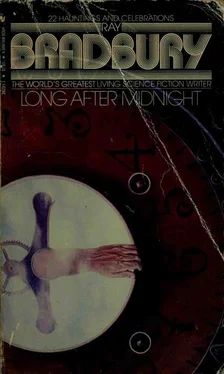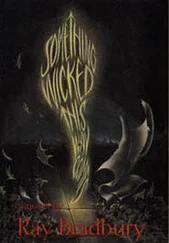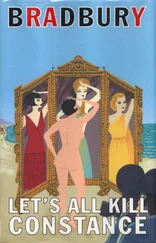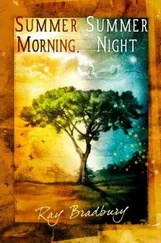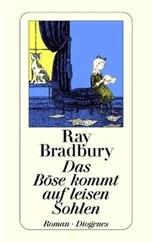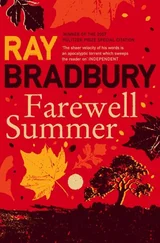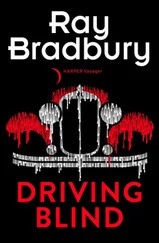Ray Bradbury - Long After Midnight
Здесь есть возможность читать онлайн «Ray Bradbury - Long After Midnight» — ознакомительный отрывок электронной книги совершенно бесплатно, а после прочтения отрывка купить полную версию. В некоторых случаях можно слушать аудио, скачать через торрент в формате fb2 и присутствует краткое содержание. Год выпуска: 1982, ISBN: 1982, Жанр: Классическая проза, на английском языке. Описание произведения, (предисловие) а так же отзывы посетителей доступны на портале библиотеки ЛибКат.
- Название:Long After Midnight
- Автор:
- Жанр:
- Год:1982
- ISBN:978-0-553-22867-0
- Рейтинг книги:5 / 5. Голосов: 1
-
Избранное:Добавить в избранное
- Отзывы:
-
Ваша оценка:
- 100
- 1
- 2
- 3
- 4
- 5
Long After Midnight: краткое содержание, описание и аннотация
Предлагаем к чтению аннотацию, описание, краткое содержание или предисловие (зависит от того, что написал сам автор книги «Long After Midnight»). Если вы не нашли необходимую информацию о книге — напишите в комментариях, мы постараемся отыскать её.
Long After Midnight — читать онлайн ознакомительный отрывок
Ниже представлен текст книги, разбитый по страницам. Система сохранения места последней прочитанной страницы, позволяет с удобством читать онлайн бесплатно книгу «Long After Midnight», без необходимости каждый раз заново искать на чём Вы остановились. Поставьте закладку, и сможете в любой момент перейти на страницу, на которой закончили чтение.
Интервал:
Закладка:
The old man laughed. "No, no, Tom, not God, but playing at it. I'm Field." He laughed again. "Lord, listen to me. I said it as if you should know who Field is. Field, the financier, Tom, bow low, kiss my ring finger. I'm Henry Field. I like your work, I brought you here. Come along."
The old man drew him to an immense crystal window.
"Do you see those lights in the sky, Tom?"
"Yes, sir."
"Those fireworks?"
"Yes."
"They're not what you think, son. It's not July Fourth, Tom. Not in the usual way. Every day's Independence Day now. Man has declared his Freedom from Earth. Gravitation without representation has been overthrown. The Revolt has long since been successful. That green Roman Candle's going to Mars. That red fire, thaf s the Venus rocket. And the others, you see the yellow and the blue? Rockets, all of theml"
Thomas Wolfe gazed up like an immense child caught amid the colorized glories of a July evening when the set-pieces are awhirl with phosphorus and glitter and barking explosion.
"What years is this?"
"The year of the rocket. Look here." And the old man touched some flowers that bloomed at his touch. The blossoms were like blue and white fire. They burned and sparkled their cold, long petals. The blooms were two feet wide, and they were the color of an autumn moon. "Moon-flowers," said the old man. "From the other side of the moon." He brushed them and they dripped away into a silver rain, a shower of white sparks on the air. "The year of the rocket. That's a title for you, Tom. That's why we brought you here, we've need of you. You're the only man could handle the sun without being burnt to a ridiculous cinder. We want you to juggle the sun, Tom, and the stars, and whatever else you see on your trip to Mars."
"Mars?" Thomas Wolfe turned to seize the old man's arm, bending down at him, searching his face in unbelief.
"Tonight. You leave at six o'clock."
The old man held a fluttering pink ticket on the air, waiting for Tom to think to take it.
It was five in the afternoon. "Of course, of course I appreciate what you've done," cried Thomas Wolfe.
"Sit down, Tom. Stop walking around."
"Let me finish, Mr. Field, let me get through with this, I've got to say it."
"We've been arguing for hours," pleaded Mr. Field, exhaustedly.
They had talked from breakfast until lunch until tea, they had wandered through a dozen rooms and ten dozen arguments, they had perspired and grown cold and perspired again.
"It all comes down to this," said Thomas Wolfe, at last. "I can't "stay here, Mr. Field. I've got to go back. This isn't my time. You've no right to interfere—"
"But, I-"
"I was deep in my work, my best yet to come, and now you run me off three centuries. Mr. Field, I want you to call Mr. Bolton back. I want you to have him put me in his machine, whatever it is, and return me to 1938, my rightful place and year. That's all I ask of you."
"But, don't you want to see Mars?"
"With all my heart. But T know it isn't for me. It would throw my writing off. I'd have a huge handful of experience that I couldn't fit into my other writing when I went home."
"You don't understand, Tom, you don't understand at all."
"I understand that you're selfish."
"Selfish? Yes," said the old man. "For myself, and for others, very selfish."
"I want to go home."
"Listen to me, Tom."
"Call Mr. Bolton."
"Tom, I don't want to have to tell you this. I thought I wouldn't have to, that it wouldn't be necessary. Now, you leave me only this alternative." The old man's right hand fetched hold of a curtained wall, swept back the drapes, revealing a large white screen, and dialem a number, a series of numbers. The screen flickered into vivid color, the lights of the room darkened, darkened, and a graveyard took line before their eyes.
"What are you doing?" demanded Wolfe, striding forward, staring at the screen.
"I don't like this at all," said the old man. "Look there."
The graveyard lay in midafternoon light, the light of summer. From the screen drifted the smell of summer earth, granite, and the odor of a nearby creek. From the trees, a bird called. Red and yellow flowers nodded among the stones, and the screen moved, the sky rotated, the old man twisted a dial for emphasis, and in the center of the screen, growing large, coming closer, yet larger, and now filling their senses, was a dark granite mass; and Thomas Wolfe, looking up in the dim room, ran his eyes over the chiseled words, once, twice, three times, gasped, and read again, for there was his name:
THOMAS WOLFE.
And the date of his birth and the date of his death, and the flowers and green ferns smelling sweetly on the air of the cold room.
"Turn it off," he said.
"I'm sorry, Tom."
"Turn it off, turn it off! I don't believe it."
"It's there."
The screen went black and now the entire room was a midnight vault, a tomb, with the last faint odor of flowers.
"I didn't wake up again," said Thomas Wolfe.
"No. You died that September of 1938. So, you see. O God, the ironies, it's like the title of your book. Tom, you can't go home again."
"I never finished my book."
"It was edited for you, by others who went over it, carefully."
"I didn't finish my work, I didn't finish my work."
"Don't take it so badly, Tom."
"How else can I take it?"
The old man didn't turn on the lights. He didn't want to see Tom there. "Sit down, boy." No reply. "Tom?" No answer. "Sit down, son; will you have something to drink?" For answer there was only a sigh and a kind of brutal moaning.
"Good Lord," said Tom, "it's not fair. I had so much left to do, it's not fair." He began to weep quietly.
"Don't do that," said the old man. "Listen. Listen to me. You're still alive, aren't you? Here? Now? You still feel, don't you?"
Thomas Wolfe waited for a minute and then he said, "Yes."
"All right, then." The old man pressed forward on the dark air. "I've brought you here, I've given you another chance, Tom. An extra month or so. Do you think I haven't grieved for you? When I read your books and saw your gravestone there, three centuries worn by rains and wind, boy, don't you imagine how it killed me to think of your talent gone away? Well, it did! It killed me, Tom. And I spent my money to find a way to you. You've a respite, not long, not long at all. Professor Bolton says that, with luck, he can hold the channels open through time for eight weeks. He can keep you here that long, and only that long. In that interval, Tom, you must write the book you've wanted to write—no, not the book you were working on for them, son, no, for they're dead and gone and it can't be changed. No, this time if s a book for us, Tom, for us the living, that's the book we want A book you can leave with us, for you, a book bigger and better in every way than anything you ever wrote; say you'll do it, Tom, say you'll forget about that stone and that hospital for eight weeks and start to work for us, will you, Tom, will you?"
The lights came slowly on. Tom Wolfe stood tall at the window, looking out, his face huge and tired and pale. He watched the rockets on the sky of early evening. "I imagine I don't realize what you've done for me," he said. "You've given me a little more time, and time is the thing I love most and need, the thing I always hated and fought against, and the only way I can show my appreciation is by doing as you say." He hesitated. "And when I'm finished, then what?"
"Back to your hospital in 1938, Tom."
"Must I?"
"We can't change time. We borrowed you for five minutes. We'll return you to your hospital cot five minutes after you left it. That way, we upset nothing. It's all been written. You can't hurt us in the future by living here now with us, but, if you refused to go back, you could hurt the past, and resultantly, the future, make it into some sort of chaos."
Читать дальшеИнтервал:
Закладка:
Похожие книги на «Long After Midnight»
Представляем Вашему вниманию похожие книги на «Long After Midnight» списком для выбора. Мы отобрали схожую по названию и смыслу литературу в надежде предоставить читателям больше вариантов отыскать новые, интересные, ещё непрочитанные произведения.
Обсуждение, отзывы о книге «Long After Midnight» и просто собственные мнения читателей. Оставьте ваши комментарии, напишите, что Вы думаете о произведении, его смысле или главных героях. Укажите что конкретно понравилось, а что нет, и почему Вы так считаете.
